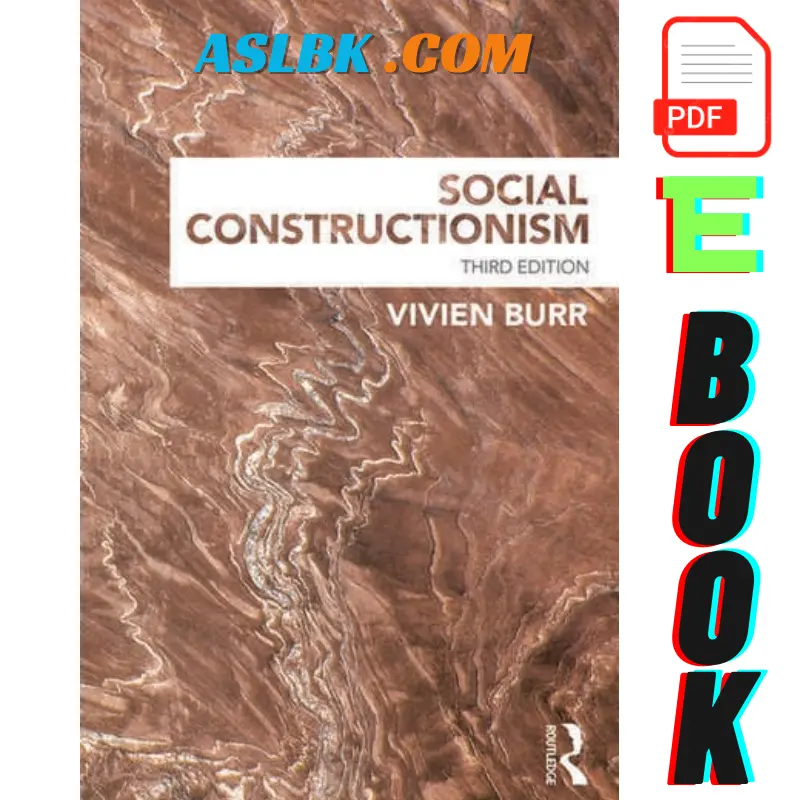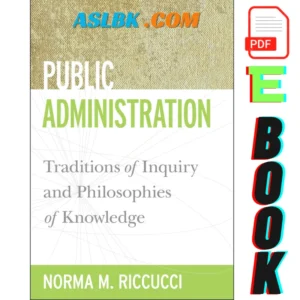Social Constructionism 3rd Edition by Vivien Burr
Unravel the World with Social Constructionism: A Deep Dive into the Third Edition
Available now on aslbk.com, “Social Constructionism,” Third Edition, by Vivien Burr, offers a captivating exploration of this influential social science theory. It’s more than just a textbook—it’s an invitation to question the world you thought you knew. Through engaging examples and clear explanations, Burr guides you through the core concepts of social constructionism, revealing its potential to transform your understanding of yourself, society, and the very nature of knowledge.
Challenge What You Take for Granted: A Critical Stance on Reality
Have you ever wondered why we perceive the world in certain ways? Why do we categorize people as “men” and “women,” “healthy” and “ill,” or assign traits like “introverted” and “extroverted”? Social constructionism challenges the notion that these categories are natural or inevitable. It encourages us to question the taken-for-granted assumptions that shape our understanding of reality, arguing that these are, in fact, social constructions, products of our interactions and the language we use.
The Power of Language: Unmasking the Hidden Structures
“Social Constructionism,” Third Edition, delves into the profound role of language in shaping our world. It moves beyond the idea that language simply describes reality, arguing that it actively constructs the world we experience. Explore the concept of “language games” and “discourse,” which demonstrate how meaning is fluid, negotiated, and bound up with power relations. Discover how the words we use shape not only our thoughts but also our actions and interactions.
Unpacking Key Concepts and Debates
This edition provides an insightful analysis of key concepts and debates within social constructionism:
Historical and Cultural Specificity: Understand how our knowledge and understanding of the world are shaped by the specific historical and cultural contexts in which we live. Explore how ideas about personality, health, and sexuality vary across cultures and have changed over time.
Knowledge as a Social Process: Discover how knowledge is not simply discovered but is actively constructed through our interactions with others, particularly through language.
The Nature of Reality and Truth: Delve into the complex debate about whether an objective reality exists outside of our discourses and constructions. Explore the implications of relativism and realism for understanding the world.
Identity and Subjectivity: Challenge the traditional view of the self as a fixed, unified entity. Explore how our identities are fluid, multiple, and constructed through our participation in various discourses.
Agency, Determinism, and the Self: Grapple with the question of free will and personal agency. To what extent are we free to choose our actions and shape our lives, and to what extent are we constrained by social structures and discourses?
A Closer Look at the Chapters:
Chapter 1: What is Social Constructionism?
This chapter introduces the core tenets of social constructionism, differentiating it from traditional psychological approaches. It lays out the key assumptions that underpin social constructionism, including its critical stance towards taken-for-granted knowledge, its emphasis on historical and cultural specificity, and its focus on the social processes that construct and sustain our understandings of the world.
Chapter 2: The Case for Social Constructionism
This chapter makes a compelling case for the value of social constructionism by examining three key areas: personality, health and illness, and sexuality. Through engaging examples, Burr demonstrates how a social constructionist perspective offers a more nuanced and insightful understanding of these phenomena than traditional psychological approaches. Public Administration Traditions of Inquiry and Philosophies of Knowledge
Chapter 3: The Role of Language in Social Constructionism
This chapter delves into the profound role of language in shaping our world. It explores the idea that language is not simply a neutral tool for describing reality, but actively constructs the world we experience. Discover how the structure of language, the concepts we use, and the ways in which we use language in interaction all contribute to shaping our understanding of ourselves and the world around us.
Chapter 4: What is a Discourse?
This chapter explores the key concept of “discourse” in social constructionism. Discover how discourses are more than just sets of ideas, but are embedded in social practices and power relations. Explore how different discourses shape our understanding of events, people, and phenomena, and how they influence our actions and interactions.
Chapter 5: Is There a Real World Outside Discourse?
This chapter delves into the complex debate about whether an objective reality exists outside of our discourses and constructions. Explore the implications of relativism and realism for understanding the world and the possibility of social and personal change.
Chapter 6: Identity and Subjectivity in Macro Social Constructionism
This chapter examines the social constructionist perspective on identity and subjectivity, focusing on the macro level of analysis. Explore how our identities are shaped by the discourses that circulate in society and how they are fluid, multiple, and constantly negotiated in our interactions with others.
Chapter 7: Identity and Subjectivity in Micro Social Constructionism
This chapter focuses on the micro level of analysis, exploring how our identities are constructed and negotiated in our everyday interactions. Discover the concept of “positioning” and how it sheds light on the ways in which we present ourselves and manage our identities in different social situations.
Chapter 8: Social Constructionist Research
This chapter provides an overview of the key theoretical and methodological issues in social constructionist research. Explore the challenges of objectivity, value-freedom, and reflexivity, and discover the diverse methods used by social constructionist researchers, including conversation analysis, discursive psychology, interpretative repertoires, Foucauldian discourse analysis, critical discourse analysis, and narrative analysis.
Chapter 9: Issues and Debates in Social Constructionism
This chapter critically examines some of the limitations and ongoing debates within social constructionism, including the need for a more robust psychology of the person, the challenge of agency and free will, and the tensions between relativism and realism.
Embrace a New Way of Seeing
“Social Constructionism,” Third Edition, is an essential resource for anyone seeking a deeper understanding of how the world we experience is socially constructed. This thought-provoking ebook will empower you to question your assumptions, critically examine your own beliefs and practices, and embrace a more nuanced and insightful understanding of yourself and the world around you.

